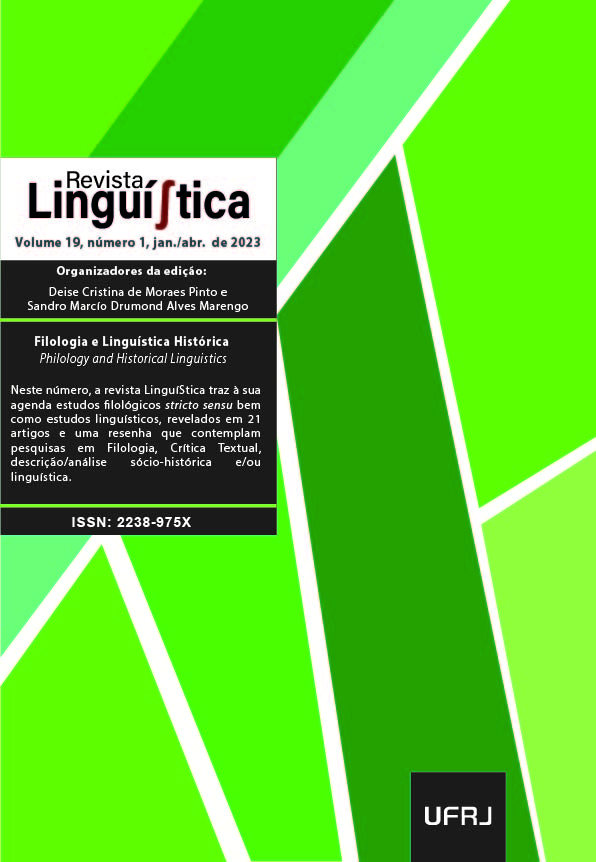Rio Grande do Sul Portuguese of the 19th century: caracterization of a late sincrony
DOI:
https://doi.org/10.31513/linguistica.2023.v19n1a57307Keywords:
Linguistic variation, historical Sociolinguistics, Portuguese from Rio Grande do Sul.Abstract
The goal of this article is to provide the characterization of Portuguese from Rio Grande do Sul in the 19th century. This study is based on the description of linguistic phenomena of graphophonetic order and sociohistorical variants in handwritten documents. The corpus is formed by conservative philological edition of non-literary 19th century handwritten documents from the “Portuguese Histórico do Rio Grande do Sul (PHRS)” archive. Based on Historical Sociolinguistics, we describe and analyze the phonological phenomena related to the socio-historical variants of document typology and the profession of the writers. The results revealed occurrence of elision, vowel harmony, lowering and raising in narrative-described typologies written by secretaries, military secretaries and the Chamber attorney. Usually the military are linked to the formation of the cities in which they register the documents. The philological study of the texts and their paleographic characteristics, show that the professionals had ability in writing. The socio historical support demonstrates they did not have training to perform their duties, not even the prescription of a Portuguese language manual. Because of that, in texts described- narratives, the phenomena are more evident. Thus, it is the correlation between linguistic phenomena, profile of the writer, associated with the formation of cities and their writing practice, as well as the document typology that allows characterizing the Portuguese of RS based on the PHRS.Downloads
Published
Issue
Section
License
Copyright (c) 2023 Revista Linguí∫tica

This work is licensed under a Creative Commons Attribution-NonCommercial 4.0 International License.
Authors who publish in the Revista Linguí∫tica agree with the following terms:
The authors maintain their rights, ceding to the journal the right to first publication of the article, simultaneously submitted to a Creative Commons license permitting the sharing with third-parties of published content as long as it mentions the author and its first publication in the Revista Linguí∫tica.
Authors may enter into additional agreements for the non-exclusive distribution of their published work (for example, posting in online institutional or non-profit repositories, or book chapters) so long as they acknowledge its initial publication in the Revista Linguí∫tica.

The journal Revista Linguí∫tica is published by the Post-Graduate program in Linguistics of UFRJ and employs a Creative Commons - Attribution-NonCommercial 4.0 International (CC-BY-NC).









